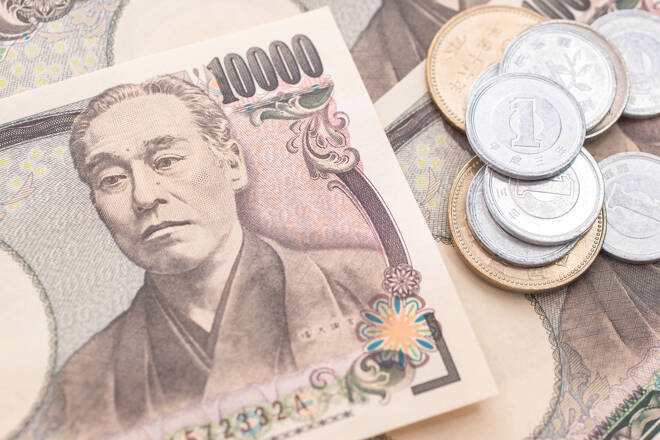Advertisement
Advertisement
USD/JPY Forecast: Softened Tokyo Inflation and A Glimpse at the Yen’s Path Forward
By:
As Tokyo experiences softer-than-forecasted inflation, the Japanese Yen and varied economic data are shaping buyer interest and monetary policy considerations.
Highlights
- USD/JPY saw a decline of 0.21% on Thursday, partially offsetting Wednesday’s gain, ending its four-day rally.
- Tokyo’s inflation softens, pulling focus back to the Bank of Japan’s monetary policies.
- US Personal Income & Outlays Report could redefine the Fed’s interest rate trajectory.
Thursday Overview of USD/JPY Movements
On Thursday, the USD/JPY declined by 0.21%. Partially reversing a 0.38% gain from Wednesday, the USD/JPY ended the day at 149.305. The USD/JPY fell from an opening price and session high of 149.626 to a low of 149.142. Notably, the USD/JPY ended a four-day winning streak.
Tokyo Inflation Softens to Return the Focus on the Bank of Japan
A softer-than-expected Tokyo core annual inflation rate weighed in buyer appetite for the Yen. The inflation rate softened from 2.8% to 2.5% versus a forecasted 2.6%.
Softer inflation forms part of a Bank of Japan list of requirements for moving away from negative rates.
However, retail sales, industrial production, and unemployment figures also drew interest. Industrial production stalled in August, while retail sales increased by 7.0% year-over-year in August, the same rate as in July. Economists forecast industrial production to fall by 0.8% and retail sales to rise by 6.6%.
Unemployment figures will likely disappoint. The Japanese unemployment rate held steady at 2.7%. Economists forecast an unemployment rate of 2.6%. Significantly, the Bank of Japan needs wage growth to fuel demand-driven inflationary pressures.
Uncertainty about the global economic outlook and a steady unemployment rate will likely support the Bank of Japan’s ultra-loose monetary policy commitment.
Later today, Japanese consumer confidence numbers will also need consideration. A pickup in consumer confidence would signal an uptrend in spending, a requirement for a shift to a demand-driven inflation dynamic.
Economists forecast the Consumer Confidence Index to climb from 36.2 to 37.0.
US Personal Income & Outlays Report in the Spotlight
Later today, the all-important US Personal Income & Outlays Report will be in focus. A higher-than-expected Core PCE Price Index and personal spending will likely support the more hawkish Fed interest rate path.
However, personal income needs to climb to signal a continued uptrend in consumption.
An uptrend in personal income counters the effects of higher borrowing costs, fueling consumption and demand-driven inflation. A more hawkish Fed interest rate path would dampen wage growth and raise borrowing costs, affecting consumption.
Short-term Forecast
Monetary policy and economic divergence remain tilted toward the US dollar. However, the Personal Income & Outlays Report must align with hawkish Fed expectations to support a USD/JPY move to 150.
USD/JPY Price Action
Daily Chart
The USD/JPY held above the 50-day and 200-day EMAs, affirming bullish price signals. Avoiding a return to below 149 will likely support a USD/JPY move to the 150.293 resistance level.
Hotter-than-expected US inflation and personal spending numbers would support a breakout session.
However, a fall below 149 would give the bears a run at the 148.405 support level.
The 65.29 14-Daily RSI supports a USD/JPY move to the 150.293 resistance level before entering overbought territory.
4-Hourly Chart
The USD/JPY remains above the 50-day and 200-day EMAs, reaffirming the bullish price signals. Avoiding the 50-day EMA would support a USD/JPY move to the 150.293 resistance level.
However, a return to below 149 will likely bring the 50-day EMA and the 148.405 support level into play. A break below the 50-day EMA would give the bears a look at sub-148.
The 63.09 14-4 Hourly RSI supports a USD/JPY move to the 150.293 resistance level before entering overbought territory.
About the Author
Bob Masonauthor
With over 28 years of experience in the financial industry, Bob has worked with various global rating agencies and multinational banks. Currently he is covering currencies, commodities, alternative asset classes and global equities, focusing mostly on European and Asian markets.
Advertisement
